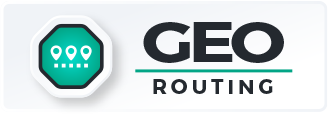- Blog
- Geo Routing
- How Bulk Routing Eliminates Manual Spreadsheet Work
Routing thousands of stops shouldn’t require hours of dragging pins, reorganizing spreadsheet rows, or guessing which driver should be assigned to which route. Yet many businesses still rely on spreadsheet-driven routing—copying addresses into Google Maps, splitting stops manually across drivers, and managing updates by hand. Bulk routing automation eliminates all of that. With Mapline, you can upload your spreadsheet, set routing rules, and generate optimized routes across your fleet—automatically.
This guide explains how bulk routing replaces manual spreadsheet work and gives field ops and dispatch teams their time back.
Why Spreadsheet Routing Is Slowing Down Your Operations
Spreadsheet routing forces humans to do work that software can do faster, more accurately, and without fatigue. The moment a spreadsheet grows beyond 50–100 stops, routing becomes slow, error-prone, and subjective. Dispatchers spend hours reorganizing rows to balance routes, only to end up manually assigning drivers based on guesswork. Every change—last-minute reschedules, cancellations, or new stops—requires editing rows again. The result is an operational bottleneck where route planning becomes the most time-consuming task in the workflow.
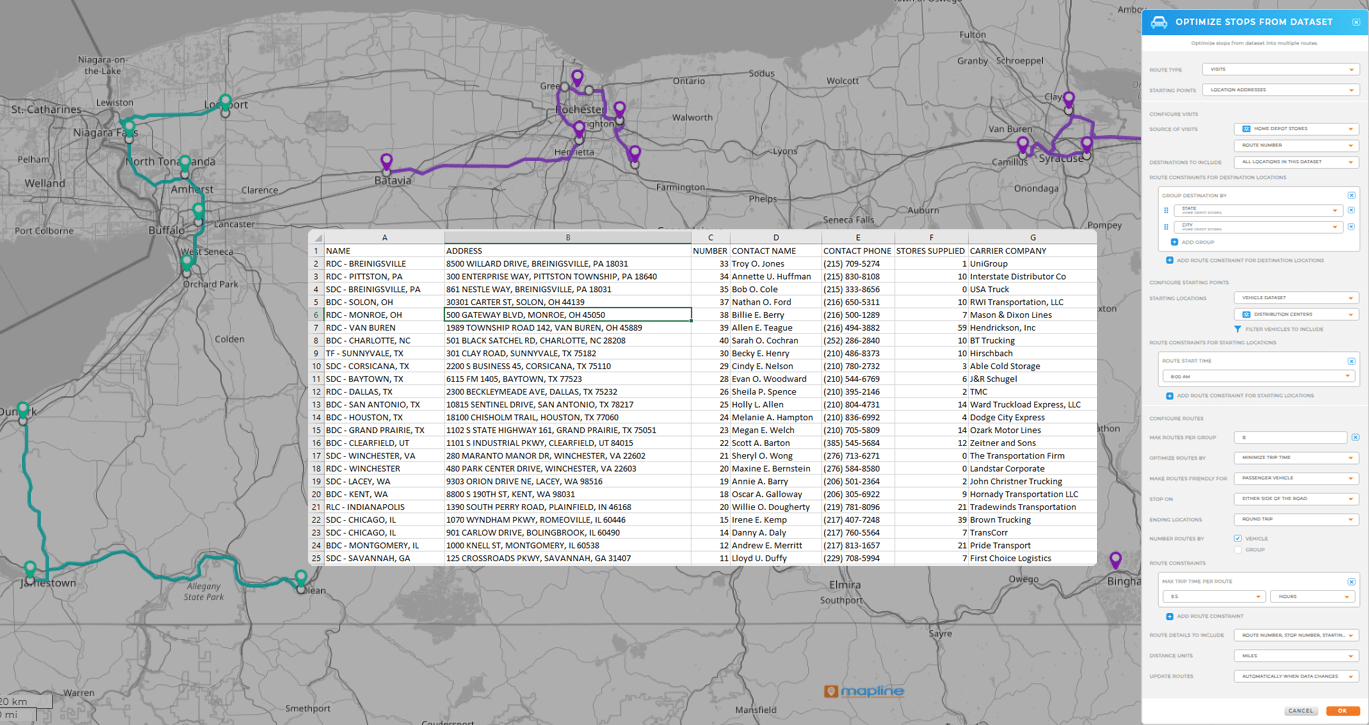

Pro Tip: Include a “Service Duration” column in your spreadsheet. Mapline will automatically calculate realistic time requirements for each route and prevent overloaded routes.
Spreadsheets Don’t Understand Distance, Drive Time, or Constraints
A spreadsheet can hold data, but it can’t *interpret* it. It doesn’t know which stops are closest together, how long each service takes, or whether a customer only accepts deliveries after 10 AM. Dispatchers are forced to run manual distance calculations or flip between Excel and Google Maps just to determine basic sequencing. Bulk routing software automatically evaluates these constraints and generates the best route possible—no calculations required.
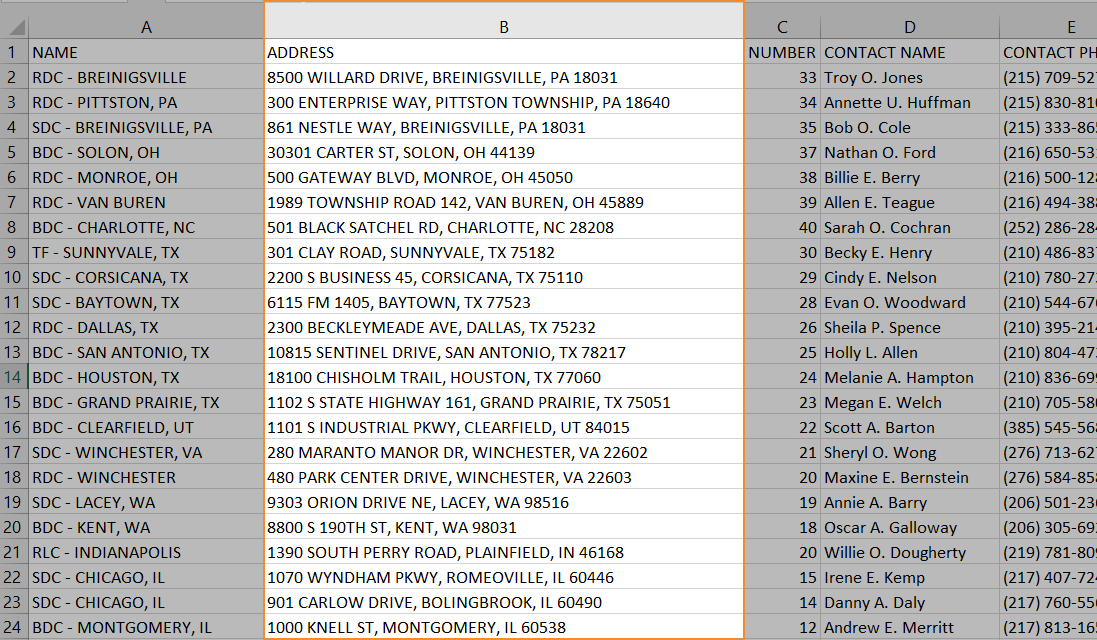
Every Change Means Starting Over
Spreadsheets don’t adapt; they reset. When a customer cancels, adds a stop, or shifts their delivery window, dispatchers have to manually recalculate routes—often undoing hours of planning. The moment something changes, the spreadsheet becomes outdated, forcing teams to re-sequence drivers, recut territories, and rebuild routes from scratch. This disrupts the entire day, increases workload, and opens the door to errors. Bulk routing software solves this by re-optimizing routes instantly, without blowing up the plan.
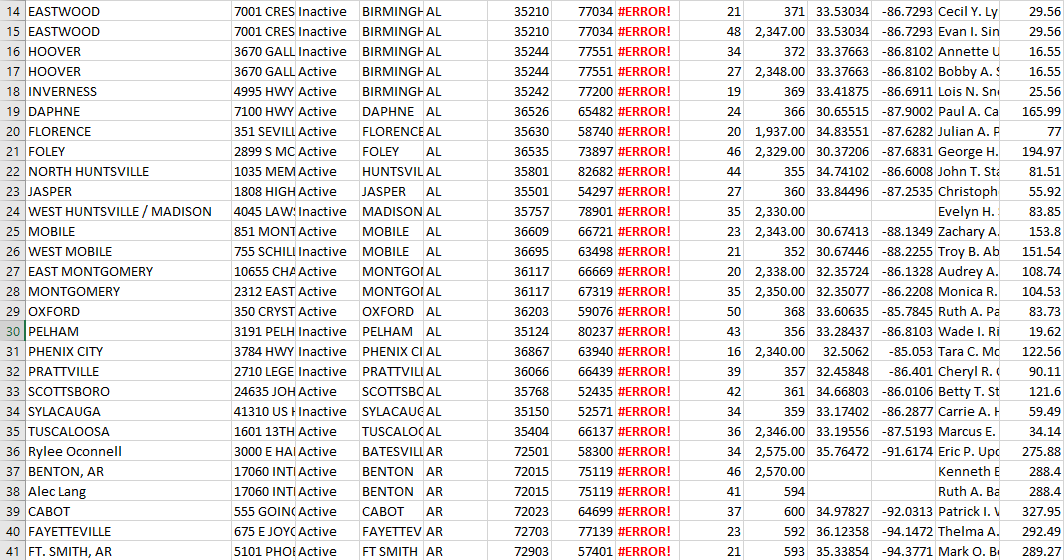
Why Google Maps and Basic Routing Tools Aren’t Built for Business Use
Google Maps and similar tools were designed for personal navigation—not high-volume logistics. They limit the number of stops you can add, don’t allow bulk uploads, and can’t split routes across multiple vehicles. There’s also no logic to consider business variables like service duration, technician skill, vehicle capacity, or customer time windows. Businesses need a routing engine that solves for efficiency, not just directions.
Google Maps Shows the Route—Mapline Builds the Plan
Google Maps will tell you how to get somewhere, but it won’t help you plan the best way to get everywhere. Mapline evaluates all stops, assigns them to the right driver, and sequences them based on your rules. Instead of creating multiple Google Maps files and trying to divide them manually, Mapline handles all routes at once—and automatically balances workloads across your fleet.
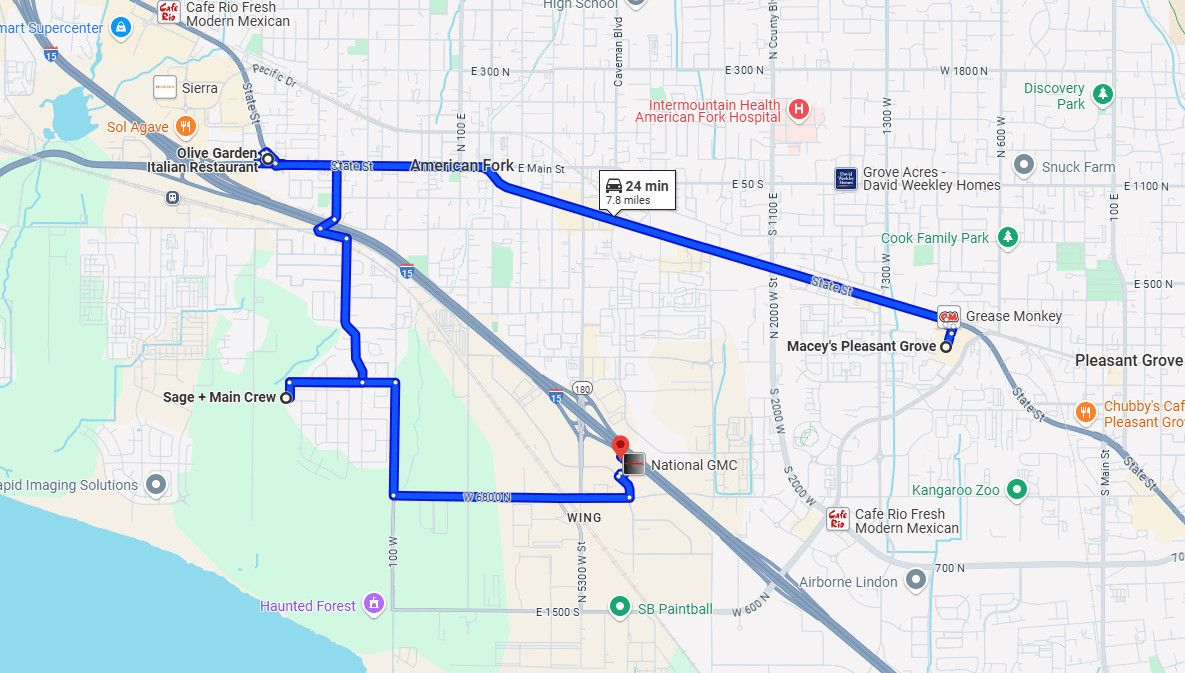
They Can’t Split Work Across Multiple Drivers
Google Maps and similar tools assume one route, one driver—period. They don’t understand fleet workloads, vehicle capacities, or how to distribute stops efficiently across multiple drivers. Dispatchers end up dividing stops manually, guessing who should take what, and hoping the balance is fair. Mapline handles this automatically by assigning stops across the fleet based on time, distance, and constraints. No more “Route A is overloaded while Route B finishes at lunchtime.”
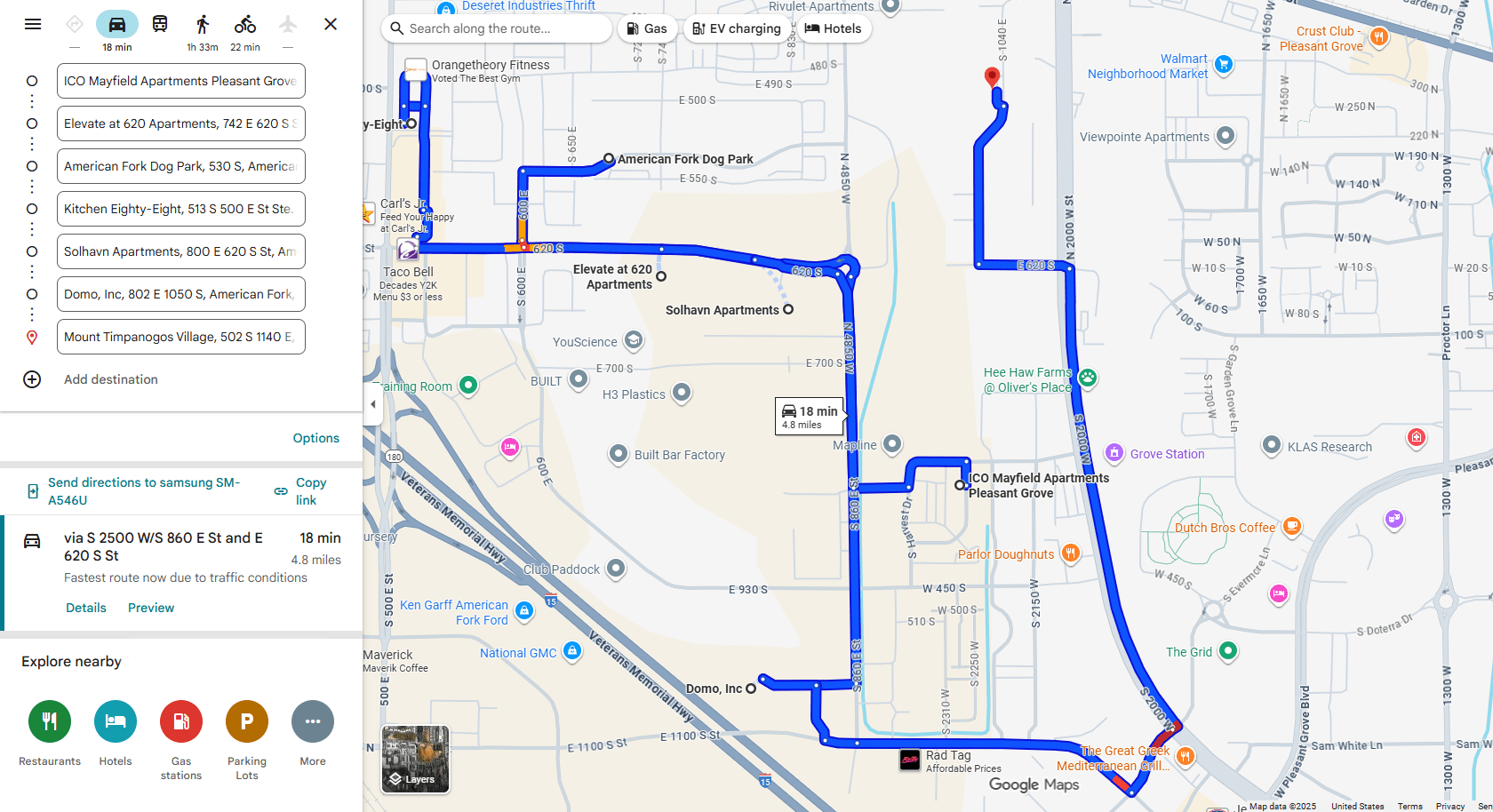
How Bulk Routing Works in Mapline
Bulk routing turns your spreadsheet into optimized, actionable routes. Instead of routing one vehicle at a time or sequencing stops manually, Mapline creates all routes in one single step. You upload your spreadsheet, define your routing logic, and Mapline generates efficient routes across your entire fleet. No manual sequencing, no copy-paste chaos, no complex formulas.
Step 1 — Upload Your Spreadsheet
Upload a CSV, Excel sheet, or Google Sheet—Mapline geocodes locations automatically, even when addresses are messy or partial. Optional fields like time windows, stop priority, load quantity, or technician skill can be included as columns.
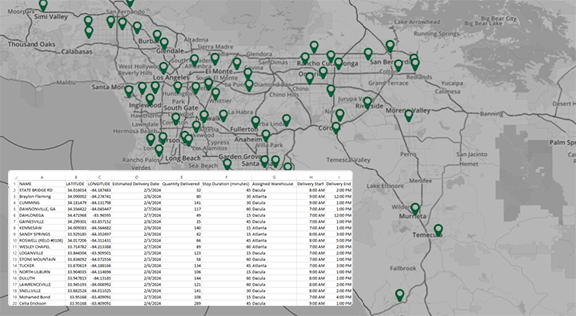
Step 2 — Apply Routing Logic
This is where routing becomes strategic. Set rules like maximum route duration, number of stops, vehicle capacity, priority stops, or service duration. Mapline uses these constraints to build the smartest route possible—not just the shortest route.

Step 3 — Generate Routes
Mapline builds optimized routes for every vehicle in minutes. It automatically distributes stops based on your inputs and shows each driver’s route visually. No guesswork. No rearranging rows. No recutting routes every time plans change.
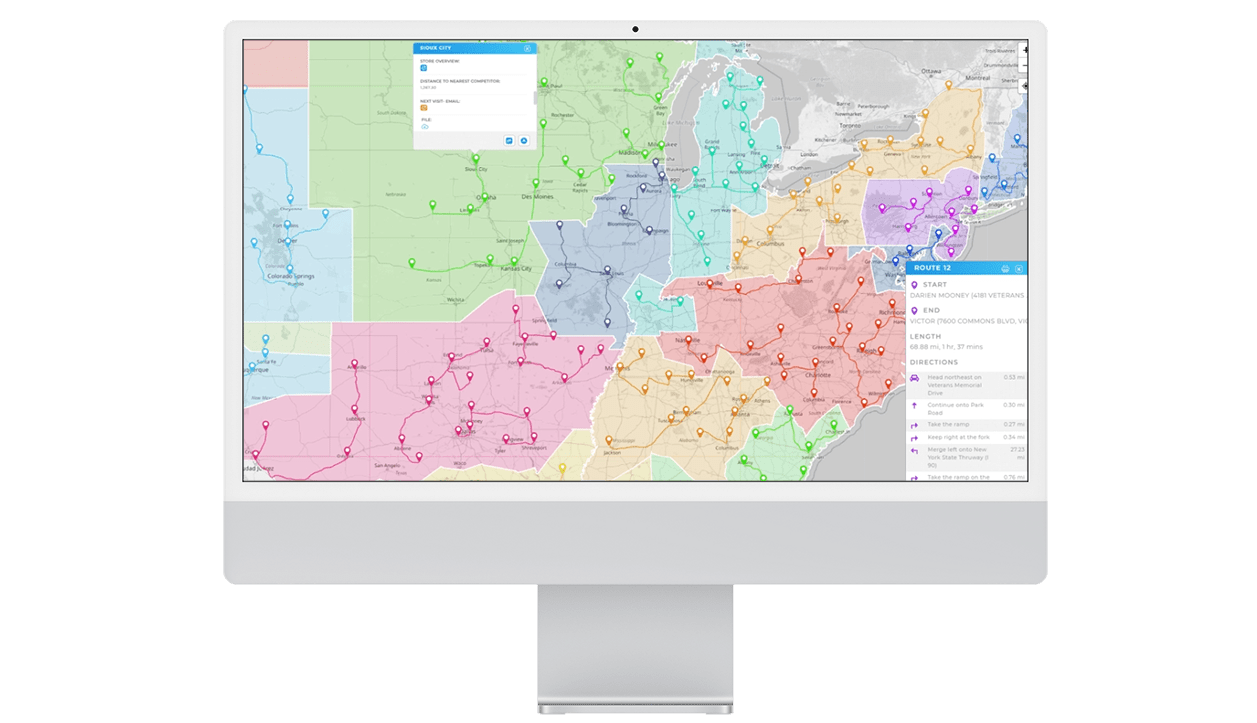
Step 4 — Export or Send Routes to Drivers
Once routes are ready, export them or send them directly to drivers with a single click. Drivers receive a mobile-friendly route link with navigation—no login required and no PDFs to print or manage.
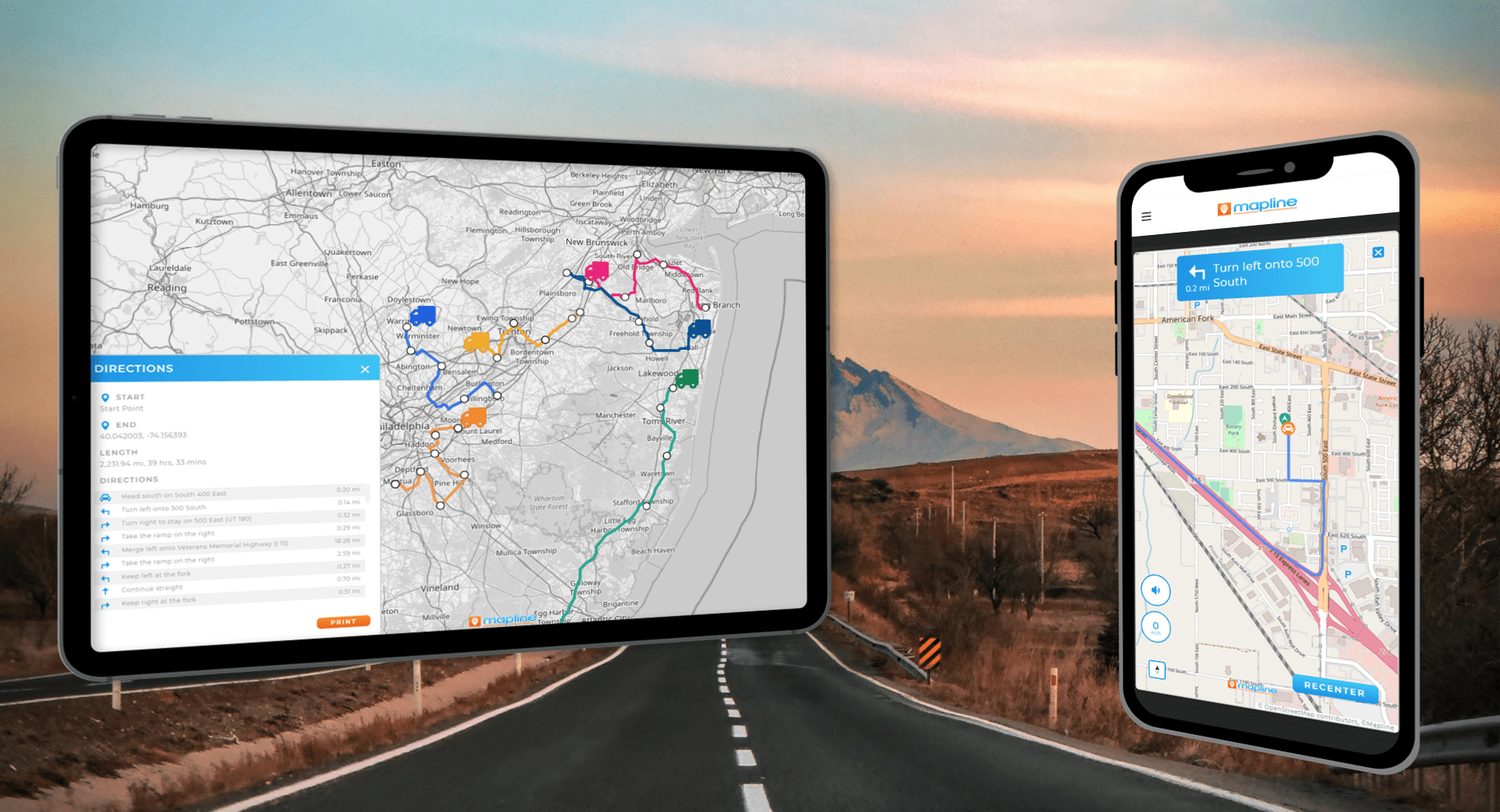
The Business Impact of Bulk Routing
Bulk routing doesn’t just save time—it increases capacity. Automating the planning phase helps businesses complete more jobs per day, reduces mileage, improves on-time performance, and increases utilization across vehicles and technicians. When planners stop spending hours sequencing spreadsheets, they get time back to focus on value-driven work: communicating with customers, improving routing rules, and planning the next day’s success.
Less Time Planning, More Time Completing Work
Teams that switch from manual spreadsheets to automated routing report saving several hours per day. Planners can generate routes in minutes—freeing up time for dispatch, communication, and oversight instead of data shuffling.

Reduced Mileage = Reduced Cost
Optimized routes eliminate backtracking, excess miles, and inefficient sequencing—directly reducing fuel costs and vehicle wear. Small efficiencies add up quickly across large fleets.
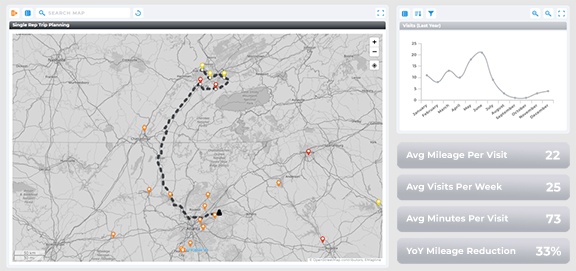
More Jobs Completed With the Same Fleet
When routes are optimized, drivers spend less time driving and more time completing work. Bulk routing increases daily job capacity without adding vehicles or headcount.

Yes. There is no practical limit for bulk routing uploads.
No—drivers receive a mobile link and can navigate instantly.
Yes. Mapline distributes stops based on your routing constraints.
Yes. Mapline uses these fields to optimize routes more accurately.







